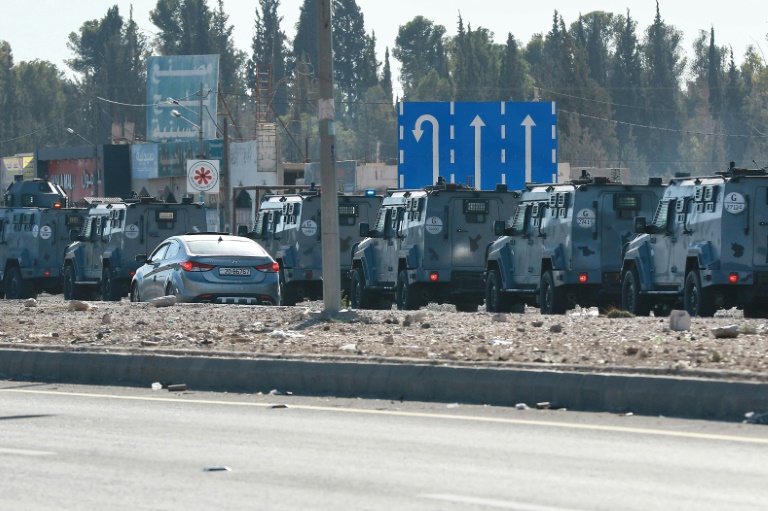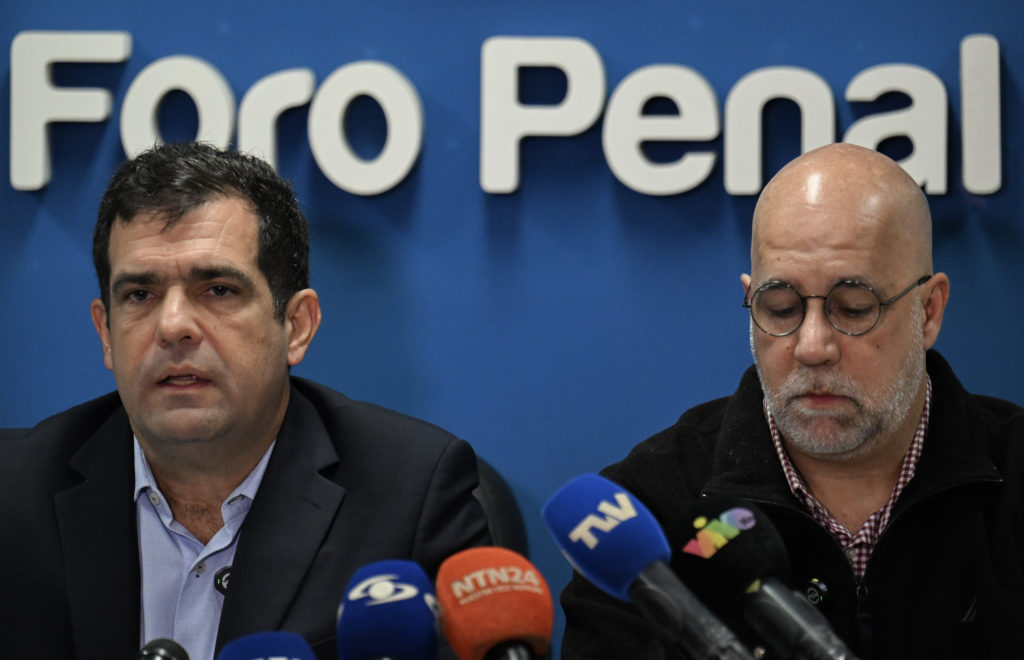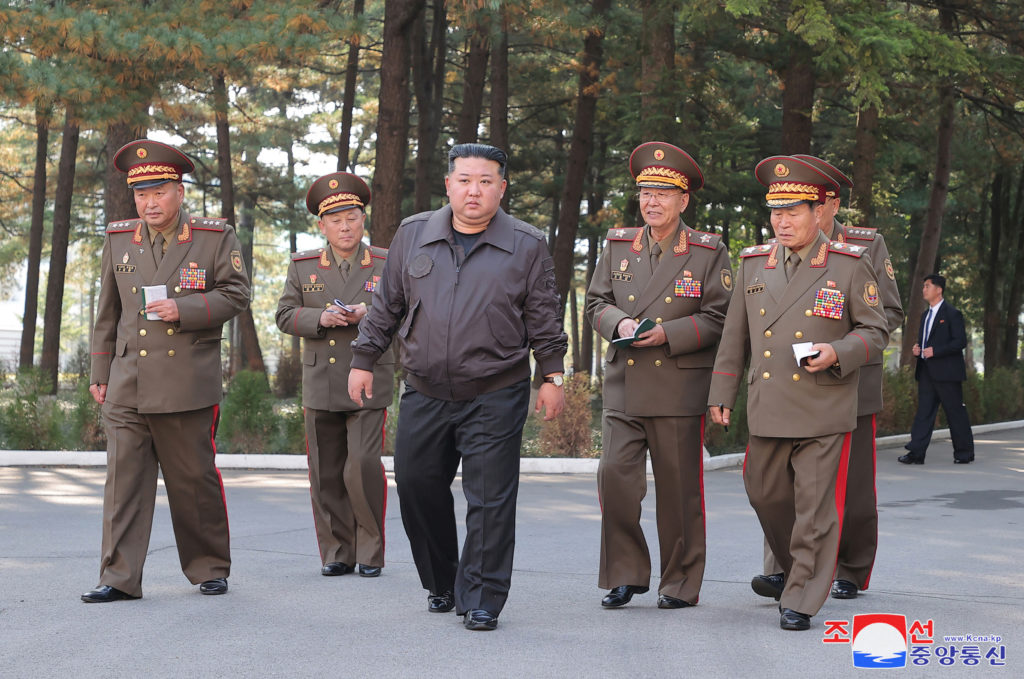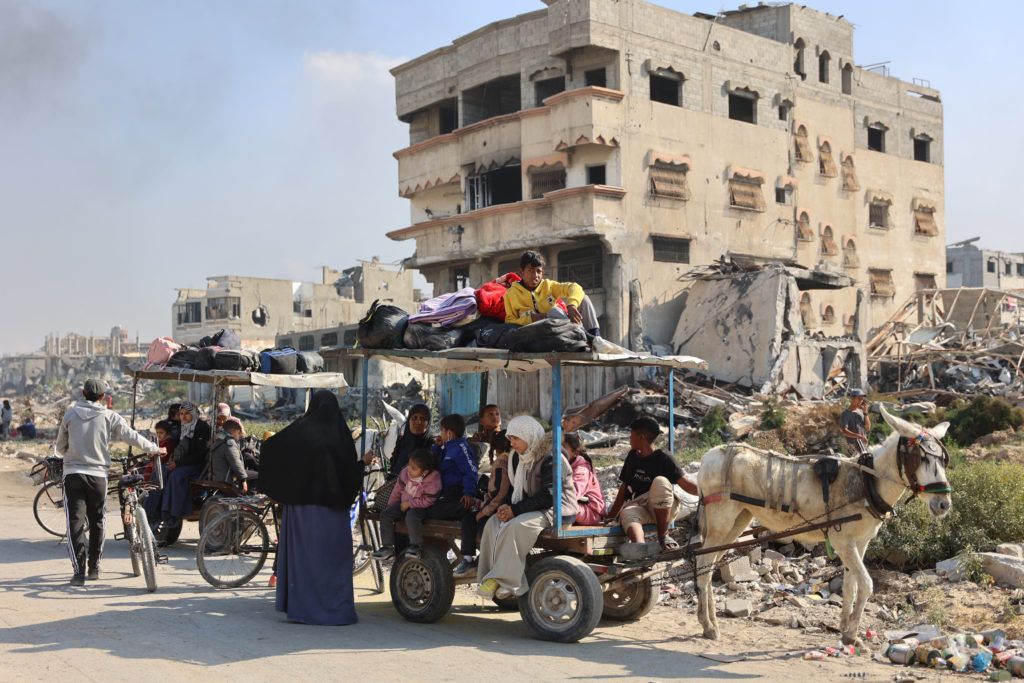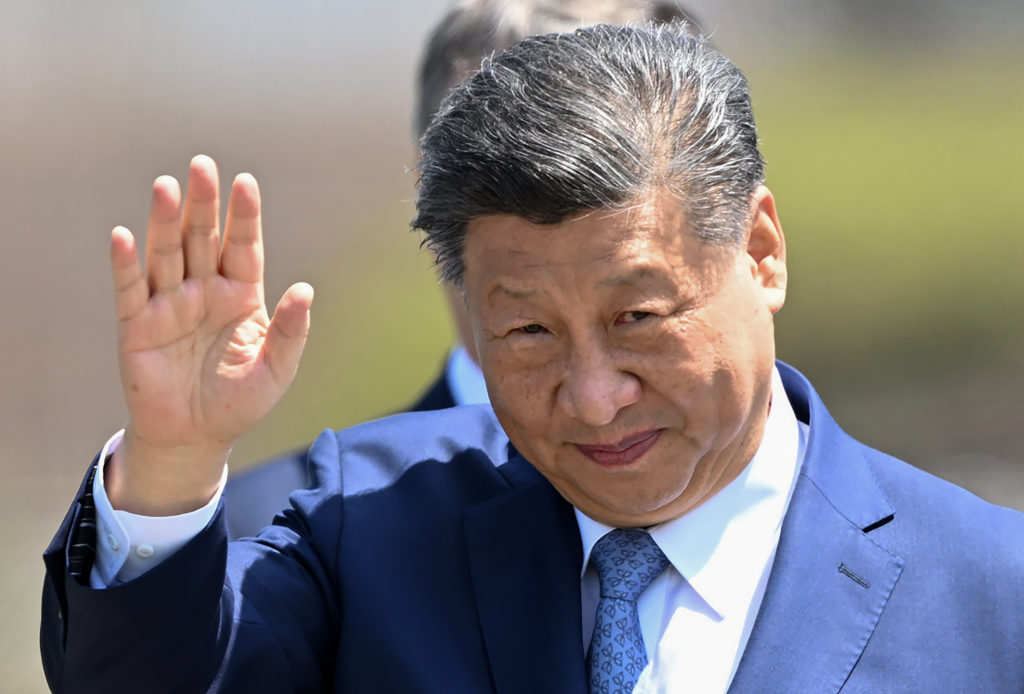Armoured vehicles of the Jordanian security forces were seen in the southern city of Maan after the unrest
Gunfire killed a senior Jordanian officer and wounded two other police in the country’s south, where protesters have taken to the streets for days against rising fuel prices, authorities said on Friday.
Colonel Abdul Razzaq Dalabeh, the deputy police chief of Maan province, was shot in the head on Thursday while officers tried to “calm down riots” in the town of Al-Husseiniya, the Public Security Directorate said in a statement.
A separate PSD statement said an officer and a non-commissioned officer “were shot” under similar circumstances, also in Al-Husseiniya.
Several provinces in the south of Jordan have seen strikes by transport drivers over the past few days. Merchants closed their premises on Wednesday to also protest higher fuel costs.
In some areas demonstrators blocked roads with burning tyres or scuffled with security officers.
AFP correspondents saw armoured vehicles on the streets of Maan on Friday and said calm had been restored. In Al-Husseiniya, the remains of burned tyres could still be seen.
Forty-nine security force members have been injured and more than 150 security and private citizens’ vehicles attacked, PSD chief Major General Obaidullah al-Maaytah told reporters.
The PSD’s cybercrime unit said on Friday it suspended operations of the TikTok app inside the kingdom “after its misuse”, citing incitement to violence and “calls for chaos”.
Fuel prices in Jordan have nearly doubled compared with a year earlier, particularly the diesel used by trucks and buses, and kerosene for heating.
The government has proposed relief measures including financial aid for the most-affected families.
– ‘We’re not rioters’ –
Global crude prices are up over the past year, and the economic consequences of Russia’s February invasion of Ukraine increased economic pain for already-struggling people around the Arab world.
“Our demands are only reducing the price or cancelling taxes on fuel, effectively linking it to the global price,” one protester, Majed al-Sharari, told AFP.
He joined dozens of striking public transport drivers who stopped their buses at the side of the road in Maan. They raised banners that read, “Dignity strike.”
“We’re not calling for chaos, and we’re not rioters,” Sharari said, blaming the government for “the blood of the martyr.”
“The strike is peaceful and we are cooperating with the security services.”
Sharari, 56, complained that the protesters had been there for 15 days but no official had spoken with them.
Interior Minister Mazen al-Faraya told a press conference the government “is aware of the difficult living conditions and that coping with them is not easy,” but violence would only make things worse.
“This crime will not go unpunished, and the security services are working to arrest the perpetrator and bring him to justice as soon as possible,” Faraya said.
He added that government buildings and private institutions had been set on fire, car windows smashed, and 48 electricity poles toppled in Maan.
Energy costs have led to protests in Jordan before, including in 2018 when prime minister Hani Mulki resigned after several days of rallies against proposed tax reforms and energy price increases.
– In debt –
The United States, a close ally of Jordan, on Thursday said US government personnel had been restricted from both personal and official travel to the provinces of Karak, Tafilah, Maan, and Aqaba until further notice.
This was because of “reports of ongoing protests, burning tyres, and throwing stones at vehicles on streets and highways throughout Jordan and particularly in the south,” the US embassy in Jordan said.
Jordan’s King Abdullah II personally extended condolences to the family of the dead officer.
“We will not accept assaults on the members of our security forces,” a statement from his office quoted him as saying.
The king affirmed the citizens’ “right to express their opinions through peaceful means” over the economic conditions, but added “anyone who raises a weapon against the state will be dealt with firmly”.
The World Bank says Jordan is heavily in debt and faces around 23 percent unemployment.
The Hashemite kingdom relies extensively on foreign aid.

